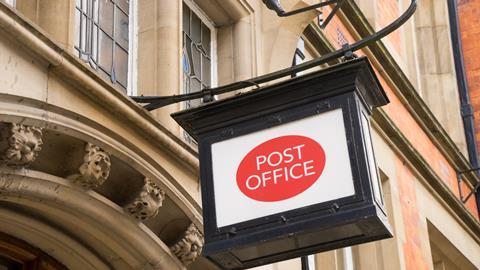Please don’t you rock my boat, no; ‘Cause I don’t want my boat to be rockin’
(Bob Marley)
The oral evidence at the Post Office Horizon IT Inquiry has been shocking. Both lawyers and non-lawyers have been cross-examined on their roles in one of the worst legal scandals in living memory. Innocent subpostmasters (SPMs) have been imprisoned, made bankrupt, had their lives ruined and, in at least one case, committed suicide, as a result of the Post Office’s wrongdoing.
As solicitors, we like to think that we are ethical, independent, and prepared to stand up and be counted when we encounter wrongdoing. We also like to think that others see us that way. But the inquiry has shown the profession in a different light. A succession of in-house solicitors at the Post Office have variously been accused of incompetence, ignorance of the law, failing in their legal duties, giving bad advice to their CEO, and being complicit in unjustly using the power of the criminal and civil law against innocent SPMs.
These accusations demand a response from the profession, the Law Society and the SRA. Have we been asleep at the wheel? Have we been complacent in assuming that we are all living the values that we are supposed to embody? Or are we a bunch of hypocrites, who say one thing and do another?
In my view, the Post Office is an exceptional case, and does not reflect the approach of the majority of solicitors. But it is not good enough to think this. We need to demonstrate it through our actions, at both an individual and collective level.
The Post Office case has focused attention on in-house solicitors, and on the need for the Society and SRA to support our in-house colleagues in maintaining their independence against pressure from unscrupulous executives. In due course, the SRA may initiate regulatory proceedings against some of the solicitors involved.
Both of these actions are important. But neither will be enough to address the credibility gap that solicitors now face in the eyes of the public. We need to do more.

In my view, the Society needs to take a much greater role in supporting and enforcing the ethical standards of the profession. Several years ago, it offloaded all of its responsibilities, other than representation of the profession, to the SRA. The SRA thinks and acts like a regulator, and has a majority of non-solicitors on its board. It does not take a leadership role within the profession; it stands outside and punishes us when we do wrong. The traditional role of the Society, as a guild that leads and guides its members, has been lost – fallen between the cracks. This role is neither regulation nor representation; it is somewhere in between. It is vague and ill-defined, but no less important for that. We need to recover this guild role, so that Law Society members know what their profession expects of them.
We are starting to talk about ethics, after a recent Law Society president, Lubna Shuja, made this subject one of the priorities of her presidential year. But talking is not enough. It needs to be made a duty of the Society to promote and enforce ethical standards. In the worst case, the Society needs to have the power to expel members from the profession who fail to meet our standards, or at least a power to initiate or recommend proceedings, even if they are conducted by the SRA or Solicitors Disciplinary Tribunal.
To do this effectively, we need statutory recognition that the Society’s role goes beyond representation. We need a new settlement that recovers from the SRA all activities other than enforcement of rules. Responsibility for training, supervision, marketing and branding should be part of that recovery. Then when people ask, what does the Society do for us, there will be a clearer and more substantive answer. They provide us with a leadership role and guide us in best practice as solicitors.
The official Society line has been not to rock the boat, and to accept without change the division of responsibilities with the SRA that was agreed some years ago. This line was restated a few months ago, when Society officials appeared before the House of Commons justice select committee. The chair of the committee, Sir Bob Neill, indicated that he might have a different view. The Society should embrace changes to its role, in light of the revelations from the Post Office Inquiry.
Mark Anderson is the Law Society Council member for business and commercial law. He writes in a purely personal capacity
This article is now closed for comment.





























12 Readers' comments